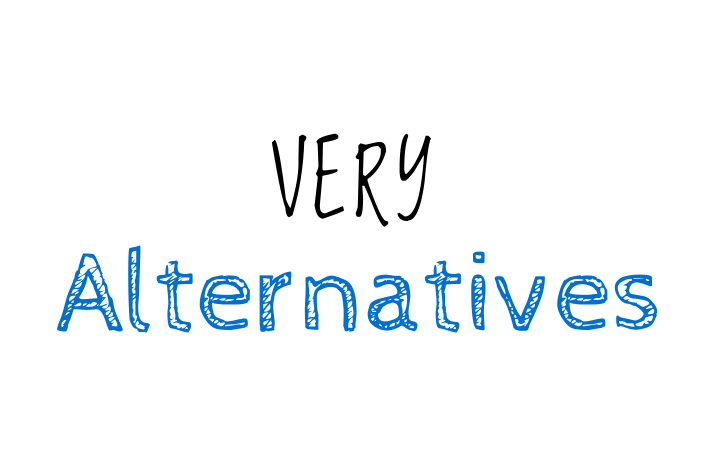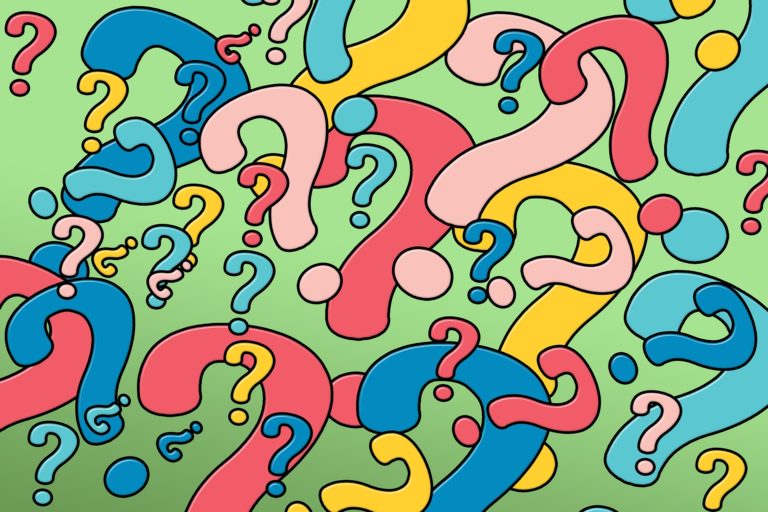Hotel Vocabulary and Expressions
The vocabulary and expressions you need for staying at a hotel aren’t particularly difficult.
But, as with anything in English, there are always some surprise terms and expressions that might catch you off guard.
Here is some hotel vocabulary that may be unfamiliar to English learners. Review the terms and be sure you’re ready for your next hotel stay.
Types of establishments
When booking a hotel room, it’s important to know the difference between different types of lodging establishments.
A motel normally has a separate entrance for each room and a parking lot in front. Guests can park directly in front of their room.
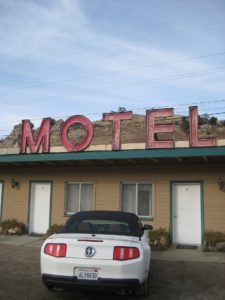
A hostel is an inexpensive establishment that offers shared rooms and shared bathrooms. Hostels often cater to young travelers.
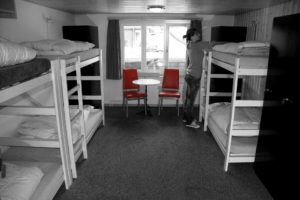
A bed and breakfast (or B&B) is a small establishment (often a private residence) that offers lodging and breakfast.
A resort is a (typically upscale) place where people stay on vacation.
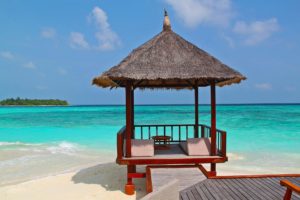
A timeshare is an ownership model in which many customers own the right to use a certain property.
A vacation rental is a property that an owner rents to vacationers.
Another thing to consider about a hotel is its rating. Hotels are rated as either one star, two star, three star, four star, or five star, with five star being the highest rating.
Types of rooms
A single room is a room with one bed that is intended for one guest to stay in.
A double room is a room intended for two people and may have one or two beds.
A triple room is intended for three people and may have one or two beds.
A twin room is a room with two twin-size beds.
A connecting room has a door inside the room which connects to the room next to it.
A suite involves multiple rooms. Suites usually include a living or sitting area and may include a kitchen or kitchenette. Many hotels offer a range of suites including junior suites ($), deluxe suites ($$), executive suites ($$$), and presidential suites ($$$$). Many hotels also often suites to couples. These are often called bridal suites or honeymoon suites.
Amenities
To attract guests, hotels and other lodging establishments offer a variety of amenities. Many of these terms are self-explanatory and do not confuse English learners. Some examples: pool, indoor pool, gym/fitness center, spa, bar, restaurant, free parking, 24-hour front desk service, complimentary breakfast, complimentary coffee/tea, complimentary WiFi, refrigerator, cable TV, safe, hair dryer, iron, city view, ocean view.
Other terms, like the ones below, may be a little more confusing to English learners.
A minibar is a small refrigerator stocked with (often alcoholic) beverages and snacks for guests. Normally, guests must pay for the items they take from the minibar.
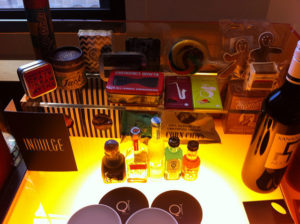
A vending machine is a machine that dispenses food (usually snacks or drinks).
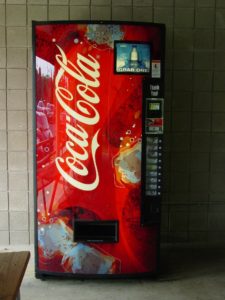
A balcony is an enclosed outdoor platform that often provides hotel guests with a scenic view.

A continental breakfast is a light breakfast which may include coffee, tea, fruit juice, pastries, bread, rolls, meats, cheeses, jam, etc.

Valet parking is a service in which an attendant parks a customer’s vehicle.
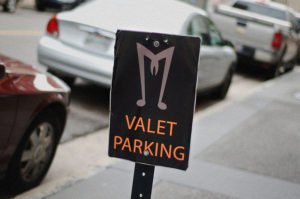
Room service is a service which allows guests to have food and drink orders delivered to their room.
Turndown service is a service in which a staff member enters a hotel room and prepares the bed for use by “turning down” the linens on the bed. At many hotels, a chocolate or mint is left on the pillow as part of the service.
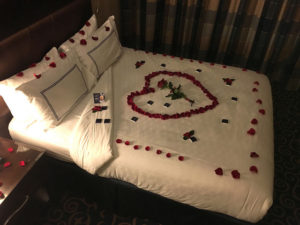
A Jacuzzi/hot tub is a large tub with heated water and underwater jets. Note that Jacuzzi is a brand name which many people use to refer to any hot tub.
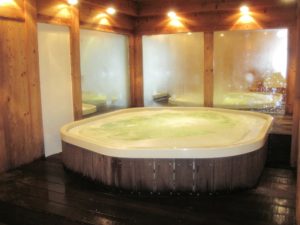
Shuttle service is transportation service that regularly provides transportation between two or more places.
Airport transfer is free transportation to and from the airport.
A game room is a room for relaxing which often features pool tables, Ping Pong tables, a dart board, foosball tables, arcade games, etc.
Currency exchange is a service in which one currency (dollars, euros, yen, etc.) can be exchanged for another.
Concierge service refers to services provided by a concierge (a hotel employee who helps guests by booking transportation, making restaurant reservations, recommending night-life options, coordinating luggage assistance, etc.).
A kitchenette is a small kitchen or a small area which offers cooking facilities.
Complimentary toiletries are personal care items (toothbrushes, toothpaste, soap, shampoo, razors,etc.) that hotels often provide to guests free of charge.
Hotel employees
A receptionist is an employee who greets guests when they arrive and checks guests in and out of the hotel.
A concierge is an employee who helps guests by booking transportation, making restaurant reservations, recommending night-life options, coordinating luggage assistance, etc.
A porter/bell hop is an employee who carries guests’ luggage.
A housekeeper is an employee who cleans guests’ rooms. The group of people who perform this service is called housekeeping.
A doorman is an employee who stands by the entrance of a building and is responsible for letting people in and out of the building.
Places in a hotel
The front desk is the desk where the receptionist greets guests and checks guests in and out of the hotel.
The lobby is the open space near the main entrance of the hotel where the front desk is.
In American English, the floor that is level with the ground is called the first floor. The next floor is called the second floor. In British English, the floor that is level with the ground is called the ground floor. The next highest floor is called the first floor.
in American English, the lifting device that transports people to different floors is called an elevator. It is called a lift in British English.
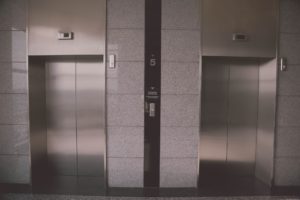
Other terms you should know
If a hotel has vacancy, it means that there are available rooms. No vacancy, of course, means that the hotel is completely full.
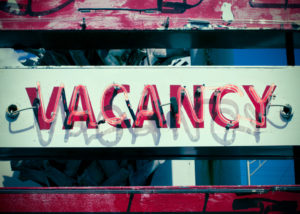
A late check-out fee is the amount of money a guest pays for not checking out before the hotel’s designated check-out time.
A room’s rate is how much it costs to stay in the room per night.
When you arrive at a hotel, you check in. When you leave, you check out. These terms can also be used as nouns.
A do not disturb sign is a sign guests can hang on the outside of the door so that hotel staff do not knock on the door or enter the room.
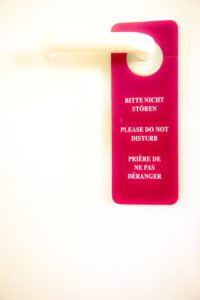
A registration form is a form that hotel guests are often asked to fill out. It contains basic personal information and information about the guest’s vehicle.
A cot is a portable, collapsible bed that can be added to hotel rooms to accommodate additional guests.
A pull-out sofa is a sofa that can be converted to a bed.
A wake-up call is a courtesy call from the front desk that is made to wake a sleeping guest.
Expressions you should know
Things you might say upon arriving at a hotel:
• I have a reservation.
• I booked a room online. It’s under (name).
• Do you have any vacancy?
• I’d like a single room/double room/triple room/twin room/suite, please.
• Where are the elevators/lifts?
• What time is checkout?
Things you might hear upon arriving:
• Do you have a reservation?
• What name is the reservation under?
• Could you fill out this registration form?
• I’m sorry, we don’t have any vacancy.
• I’m sorry, we’re completely booked./I’m sorry, we’re full up.
• When are you planning to check out?
• Would you like help with your bags?
• Enjoy your stay!
Things you might say when checking out:
• I’d like to check out.
Things you might hear when checking out:
• How was your stay?
• Could I have your room key, please?
• Could you sign for these charges, please?
• Your total is… How would you like to pay?
.
Traveling can be stressful, but it’s easier if you know the vocabulary you’ll need. Hopefully these terms help you during your next hotel stay.
Also, as general advice, it’s always a good idea to look up some useful vocabulary any time you’re going to be in a new and unfamiliar situation.
Also see Vocabulary and Expressions for Eating at a Restaurant in the US.




